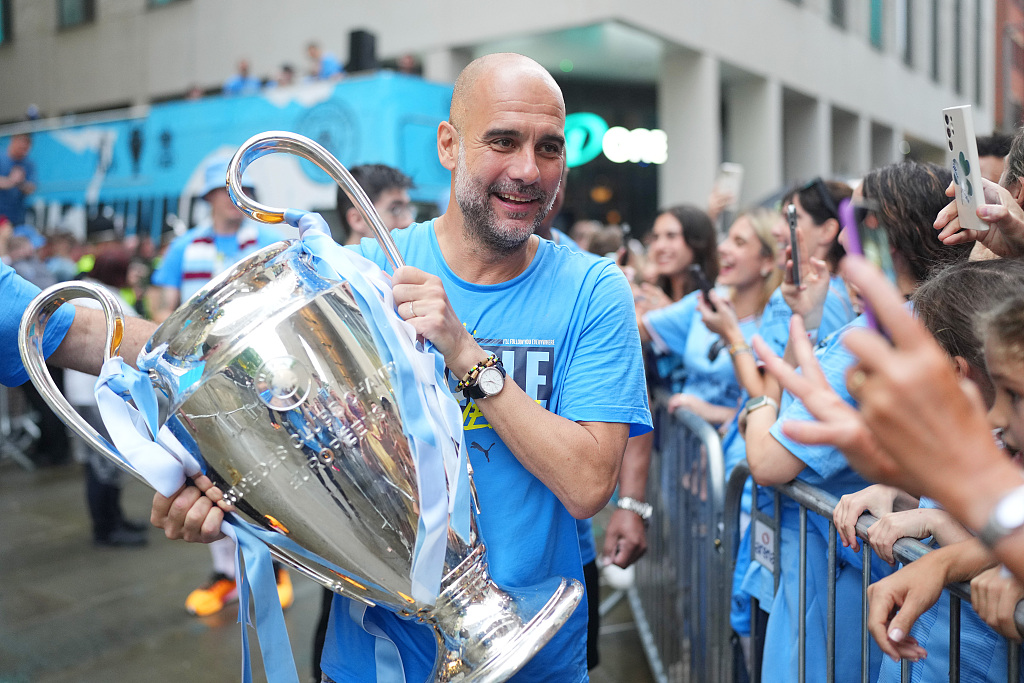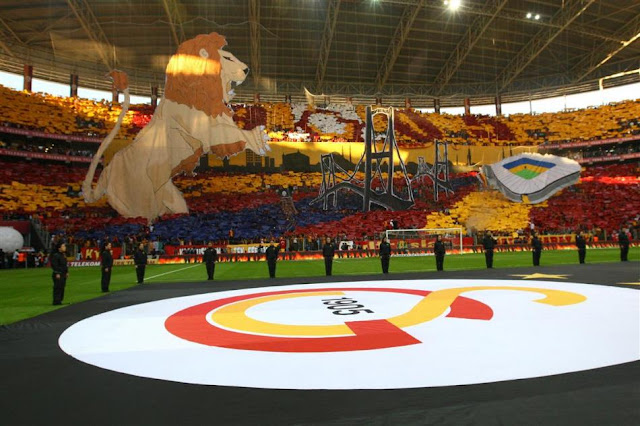In the annals of football management, few names resonate with as much prestige and innovation as that of Pep Guardiola. A maestro on the touchline, Guardiola’s tenure at Manchester City has been nothing short of extraordinary, marked by a sustained period of dominance both domestically and on the European stage. But what exactly lies behind the Catalan’s unparalleled success at the Etihad Stadium?
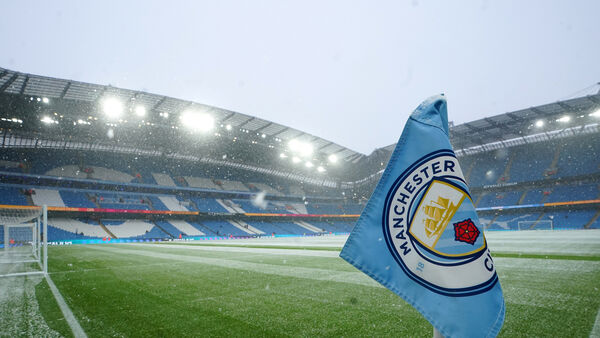
Tactical Brilliance:
Central to Guardiola’s success is his tactical acumen, a facet of his management style that sets him apart from his peers. Guardiola’s commitment to possession-based football, characterized by intricate passing, fluid movement, and relentless pressing, has revolutionized the modern game. At Manchester City, this philosophy has been instilled into every aspect of the team’s play, resulting in breathtaking displays of attacking football.
Adaptability:
While Guardiola is often associated with his trademark possession-oriented style, what truly distinguishes him is his ability to adapt his tactics to suit the demands of any given match. Whether it’s deploying a false nine, shifting formations mid-game, or instructing his players to press high up the pitch, Guardiola’s tactical flexibility ensures that Manchester City are always one step ahead of their opponents.
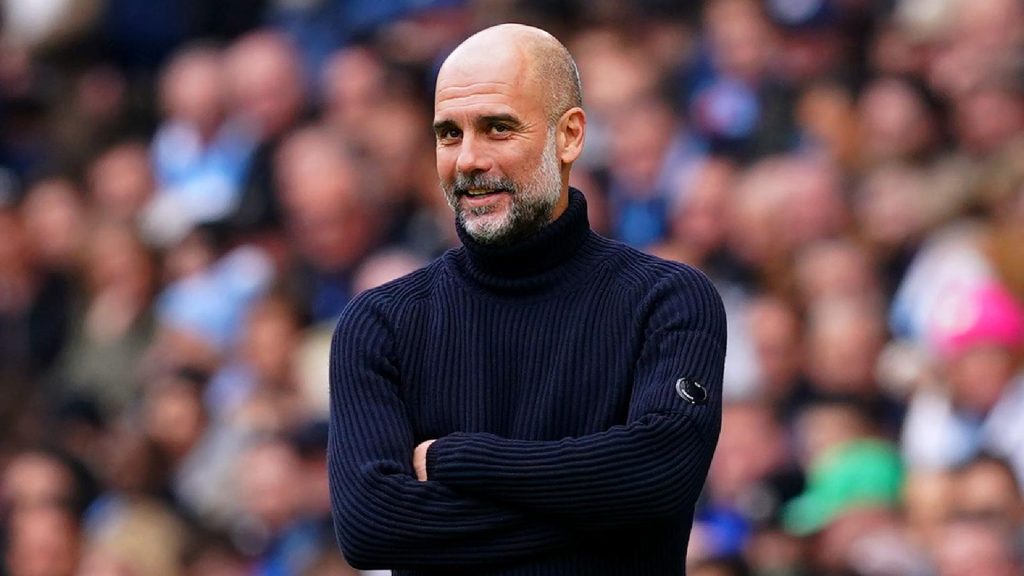
Man-management:
Beyond his tactical genius, Guardiola’s success can also be attributed to his exceptional man-management skills. Renowned for his ability to inspire and motivate his players, Guardiola fosters a culture of excellence and accountability within the squad. By nurturing strong relationships with his charges and creating a sense of unity and purpose, Guardiola ensures that every player is fully committed to the team’s cause.
Attention to Detail:
Guardiola is a perfectionist in every sense of the word, leaving no stone unturned in his pursuit of success. From meticulously analyzing opposition teams to scrutinizing every aspect of his own side’s performance, Guardiola’s attention to detail is second to none. This relentless pursuit of excellence permeates throughout the entire club, creating an environment where mediocrity is simply not tolerated.
Investment in Youth:
At Manchester City, Guardiola has demonstrated a keen eye for talent, both established and emerging. While the club’s considerable financial resources have undoubtedly facilitated the acquisition of top-tier players, Guardiola has also shown a willingness to place his faith in young, homegrown talent. By integrating academy graduates such as Phil Foden and Raheem Sterling into the first team, Guardiola has not only bolstered the squad but also ensured the long-term sustainability of the club’s success.
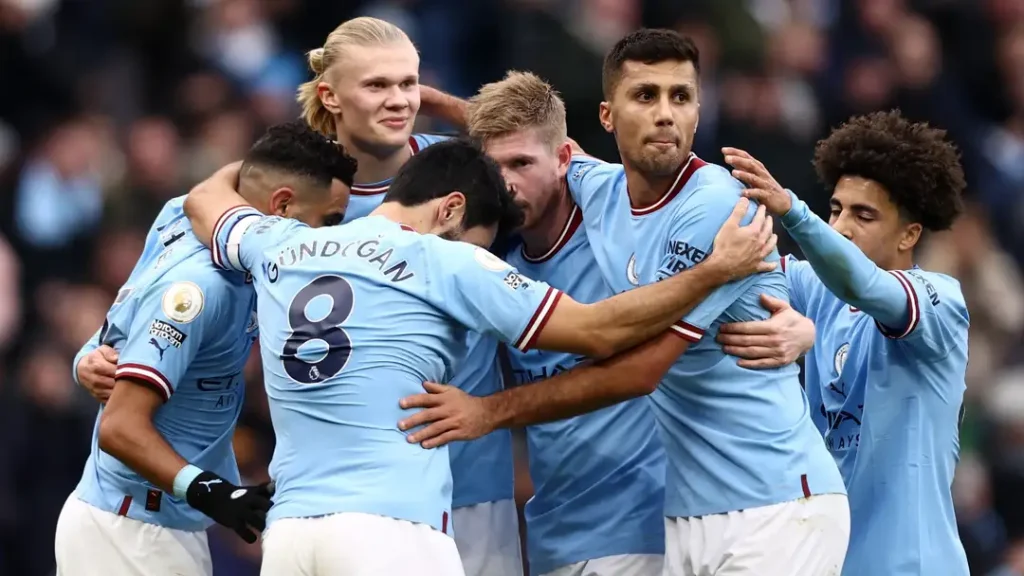
Cultural Impact:
Guardiola’s influence extends far beyond the confines of the pitch, permeating throughout the entire club and even the city of Manchester itself. Under his stewardship, Manchester City has become synonymous with a brand of football that is not only aesthetically pleasing but also ruthlessly effective. This has not only endeared Guardiola to the club’s supporters but has also elevated Manchester City to the upper echelons of European football.
Legacy:
As Guardiola continues to add to his ever-expanding list of accolades at Manchester City, his legacy as one of the greatest managers of all time is already assured. His impact on the game transcends mere trophies, serving as a beacon of innovation and excellence for future generations of coaches to emulate. For Manchester City, the Guardiola era represents a golden age, a period of unparalleled success that will be remembered fondly for years to come.
Pep Guardiola’s success at Manchester City can be attributed to a combination of tactical brilliance, adaptability, man-management skills, attention to detail, investment in youth, and cultural impact. As he continues to push the boundaries of what is possible in football management, one thing is certain: Guardiola’s influence on the beautiful game will be felt for generations to come.

